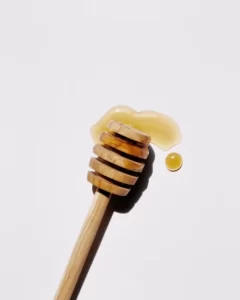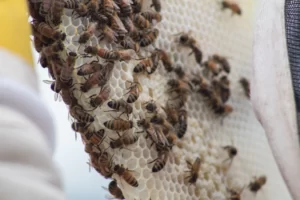Table of Contents
Manuka honey is a premium product that is highly regarded for its alleged health benefits. It is particularly known for its antibacterial properties and is believed to support wound-healing and gut health. However, the authenticity and quality of manuka honey sold outside of New Zealand have been called into question.
The Definition of Manuka Honey
According to New Zealand’s Ministry for Primary Industries (MPI), manuka honey is produced by bees that collect nectar from the manuka plant (Leptospermum scoparium), which is found throughout the country. To ensure that honey labeled as manuka meets the criteria, all exports of manuka honey must be tested by an MPI-recognized laboratory. The definition of manuka honey includes a combination of five attributes, which consist of four chemicals from the nectar and one DNA marker from manuka pollen. This definition allows the industry to distinguish manuka honey from other types of honey.
Lack of Standardized Testing Overseas
However, outside of New Zealand, there is no standardized testing for the quality and authenticity of manuka honey. This has raised concerns about whether the manuka honey sold on shelves overseas is truly genuine. To address this issue, the Unique Manuka Factor Honey Association (UMFHA) has conducted scientific testing in the UK and US.
Testing Results
The UMFHA enlisted the services of a certified independent laboratory to test 46 manuka honey brands that originated from outside New Zealand and were sold in the UK and US. These products were deemed popular and were sold by major online retailers with labels claiming them to be manuka honey.
Unfortunately, all of the products tested failed to meet New Zealand’s regulatory criteria for authentic manuka honey. Samples taken from other international markets also did not meet the criteria. The UMFHA classified all of the tested products as non-manuka honey, indicating that they did not come from the tree and nectar associated with supporting good health. Additionally, they failed to meet key MPI markers.
The testing revealed several issues with the products. 82% of the tested products failed the CODEX quality requirement of <40mg/kg HMF (Hydroxymethylfurfural). 60% failed the naturally occurring chemical 4-HPLA tests, and 80% contained no detectable leptospermum scoparium DNA. Furthermore, 32% of the products failed to meet the potency label claim, which is significant because the ingredient methylglyoxal (MGO), responsible for the antibacterial and antimicrobial properties of manuka honey, typically decreases over time.
Misleading Consumers
The UMFHA has expressed concerns that these brands are misleading consumers. A survey conducted by 3Gem Research and Insights in the UK revealed that 58% of British consumers specifically buy manuka honey for its natural health benefits. Additionally, 76% of respondents believe that the products they purchase from reputable retailers are as advertised and 100% legitimate. However, the non-New Zealand manuka honey products that are incorrectly labeled as manuka honey are deceiving consumers who are seeking the intended health benefits but are not receiving them.
In conclusion, the testing of manuka honey sold outside of New Zealand has revealed that the majority of products do not meet the regulatory criteria for authentic manuka honey. This raises concerns about the quality and authenticity of manuka honey available in international markets. Consumers who purchase manuka honey for its health benefits may be misled by the labeling of these products. It is important for consumers to be aware of these issues and to make informed choices when purchasing manuka honey.



